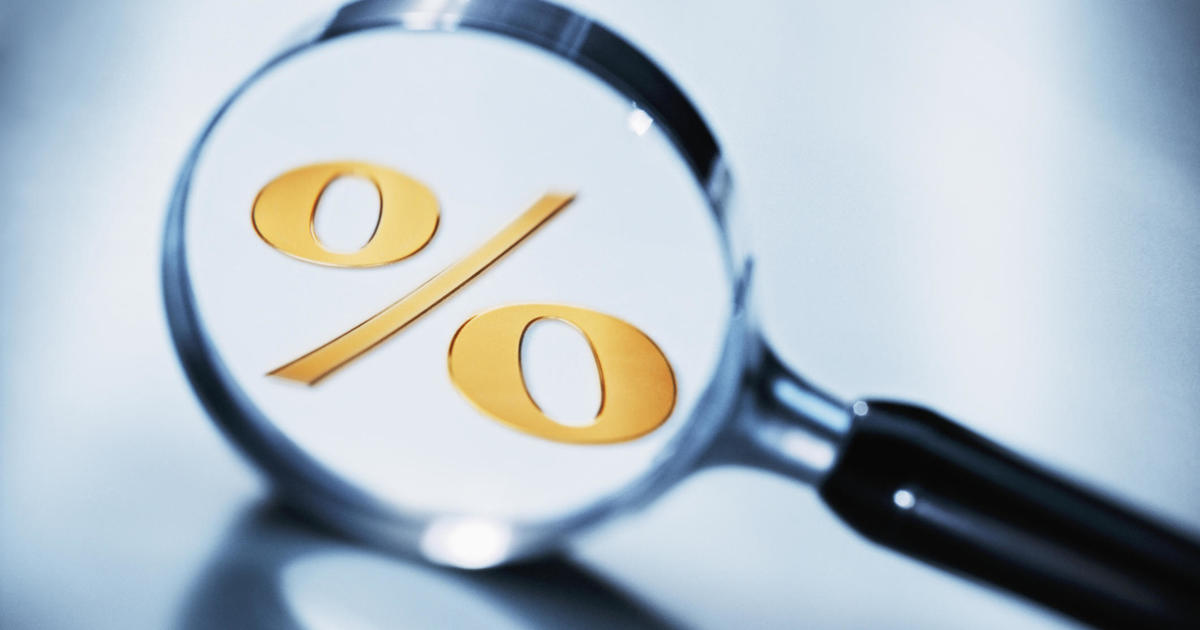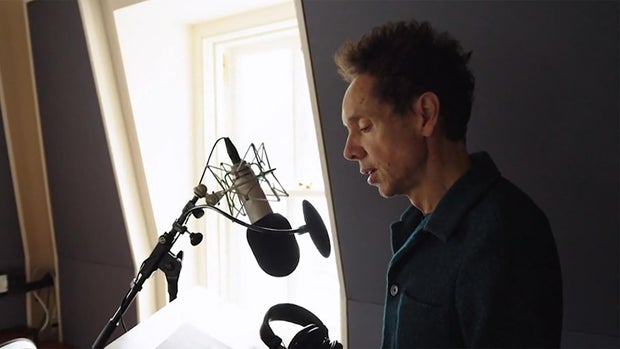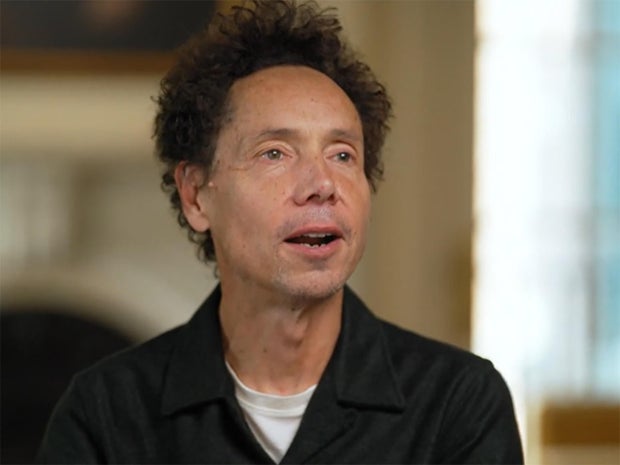CBS News
How far will savings rates fall if the Fed cuts rates? Here’s what experts say

Getty Images
In order to try to tame high inflation, the Federal Reserve went through a stretch from March 2022 through July 2023 where it quickly raised the federal funds rate, eventually landing at 5.25 to 5.50%, a 22-year high. This rate affects what banks charge one another for overnight lending, so a higher benchmark rate typically leads to higher rates on loans, such as mortgages. But the other side of that coin is that a higher benchmark rate also means higher interest rates on savings.
On average, regular savings accounts currently have an annual interest rate of about 0.47%. However, that’s not the case for many high-yield savings accounts right now. These types of accounts tend to pay far more, with many offering annual percentage yields (APYs) around 5% currently, if not higher.
However, these high rates may start to come down relatively soon, as many experts predict the Fed will start cutting interest rates later this year. That, in turn, will likely impact what banks offer to savers. But how far will savings rates fall if the Fed cuts rates this year?
Compare your top savings account options online now.
How far will savings rates fall if the Fed cuts rates? Here’s what experts say
Should the Fed make rate cuts this year, some possible savings rate scenarios include:
A 0.75% drop in rates in 2024
Although the Fed has held rates steady recently, which has contributed to banks continuing to offer high savings interest rates, that might not last for long.
“Based on my research and insights, it appears that many believe that starting in June — with the Fed meeting on June 12th — there will be the first of three rate cuts at approximately 25 basis points each,” says Jeff Mandel, CEO of Credit and Debt.
“It is forecasted that this would cause a correlating reduction in savings rates up to 0.25% after each cut,” he adds.
So if a high-yield savings account currently has a 5% APY, he says, that could mean savings rates would fall to 4.25% after the three expected Fed rate cuts in 2024.
Find out the best savings rates you could earn today.
Some larger and some smaller cuts, depending on the bank
While many experts agree on the pace of the Fed’s rate cuts, how that will affect banks isn’t as straightforward. For example, some banks might maintain higher rates as a way to attract customers, even if the Fed starts cutting rates, while banks that aren’t as eager for more deposits might feel more comfortable cutting rates.
“Banks that feel they are healthy in deposits may lower their rates at a faster rate, while those banks that want to try to maintain strong asset flow/deposits may be slower to lower their rates,” says Brett Bernstein, CEO and co-founder at XML Financial Group.
Some might even offer temporary promotional rates with attractive APYs to bring in more deposits, he adds.
In other words, savings account rates might not move exactly in line with what the Fed does, as much of it depends on a bank’s own strategy.
Potential for larger drops past 2024
After the initial expected Fed rate cuts, savings account rates could fall even more heading into 2025, some experts say.
“As many analysts predict, the Fed is likely to start cutting rates later in 2024 and continue in 2025. If we see an overall 1% decrease in rates, we can expect to see top savings rates fall by 1-2%, depending on the institution,” says Aaron Cirksena, founder and CEO at MDRN Capital.
While the Fed might only cut the benchmark rate by around 0.75% this year, continued cuts in 2025 could bring savings account rates even lower. And, while top savings rates will likely still be above 4% and possibly over 4.25% by the end of 2024, the pace could pick up in 2025, says Mike Hunsberger, owner of Next Mission Financial Planning
“I think it is likely that interest rates on savings accounts will continue to fall if the Federal Reserve is satisfied that they’ve got a handle on inflation and can continue to cut the fed funds Rate. I think the rates could approach 3-3.5% if inflation gets back to about 2%,” Hunsberger says.
There’s also the possibility that rates could fall based on broader economic conditions beyond inflation.
“Rates could also drop if the economy weakens significantly and the Federal Reserve lowers rates to try to spur near-term growth. How low they’d go in this instance would depend on how weak the economy is,” says Hunsberger.
The bottom line
Many experts agree that savings account rates are likely to generally trend lower this year, with the top savings accounts dropping rates by around 75 basis points, e.g., falling from 5% to 4.25%. However, some banks might cut rates faster than others if they don’t have as much of a need to attract deposits, while others might keep rates temporarily high to draw in customers.
The pace could pick up in 2025, experts say, with rates potentially falling into the 3% range for some of the best savings accounts. However, much depends on what happens with the economy.
CBS News
New Zealand reclaims world record for largest mass haka

New Zealand on Sunday reclaimed the world record for the largest mass haka after more than 6,000 people performed the legendary Maori war dance, dethroning France.
The record was broken in deafening fashion at Eden Park rugby stadium in Auckland, where thousands of men, women and children combined on the pitch to complete the traditional native challenge involving vigorous movements, stamping feet and rhythmic shouting.
An adjudicator confirmed that 6,531 participants had performed the ‘Ka Mate’ haka, a rendition made famous by the All Blacks rugby team, who perform it immediately before Test matches.
France had held the world record since September 2014 when 4,028 people slapped their thighs and bellowed the chant following a rugby match in France Brive-la-Gaillarde, southwestern France.
Auckland organizers had hoped for up to 10,000 participants but were nevertheless pleased the record had been reclaimed by New Zealand, where the haka is regarded as a national treasure.
“We want to bring the mana (pride) of the haka back home,” Michael Mizrahi, director of the Auckland attempt, told AFP. “It’s not just that we want to take it off the French, it’s like a national treasure that somebody has taken from us. It’s got enormous meaning for us as New Zealanders.”
He added: “Some things should be culturally sacred.”
DJ MILLS/AFP via Getty Images
Previous attempts involving crowds of more than 5,000 on New Zealand soil failed because Guinness World Records officials didn’t ratify them, Mizrahi said.
This time around, an adjudicator was flown to Auckland.
The Ka Mate haka was composed around 1820 by the warrior chief Te Rauparaha to celebrate his escape from a rival tribe’s pursuing war party.
Under New Zealand law, a Maori tribe, the Ngati Toa, based in Porirua just outside Wellington – are recognized as the cultural guardians of the Ka Mate haka.
CBS News
Malcolm Gladwell on “Revenge of the Tipping Point”

Watch CBS News
Be the first to know
Get browser notifications for breaking news, live events, and exclusive reporting.
CBS News
Malcolm Gladwell’s life has changed; he has not

On Tuesday, a new Malcolm Gladwell book comes out. And if history is any guide, it will be a bestseller. “They’re stories about ideas,” he said. “They have characters. They have plots. I’m usually trying to say something about the world.”
His first book, “The Tipping Point,” published in 2000, established the Gladwell recipe: he explores a theme through anecdotes and little-known scientific studies. “‘Tipping Point’ was about the epidemic as an incredibly useful way of understanding how ideas move through society,” Gladwell said. “And epidemics have rules. Let’s learn the rules, right?”
His seven New York Times bestsellers have sold 23 million copies in North America alone. His fee for corporate speeches is $350,000. His fans have downloaded a quarter-billion episodes of his podcast, “Revisionist History,” and he founded a company called Pushkin Industries to produce it.
CBS News
In other words, Gladwell has come a long way from the small Canadian town where he grew up, son of a British father and a Jamaican mother, whom he describes as “subversive,” someone who would write notes to excuse her son from class with a blank space. “I would just fill out the date,” said the man who skipped a lot of school.
He attended the University of Toronto, but his best education was the ten years he worked for the Washington Post. “I knew nothing about newspapers,” he said. “I was so raw. I was 23, I think, or 24. Bob Woodward was two rows away from me. I learned at the feet of the greatest journalists of my generation.”
In 1996, Gladwell joined The New Yorker. He wrote about why, in the 1990s, New York’s crime rate plummeted in an article called, “The Tipping Point.” A book followed. It introduced a recurring Gladwellian theme: hidden patterns in the way the world works.
He’s a world-class contrarian, about college (“You should never go to the best institution you get into, never; go to your second or your third choice. Go to the place where you’re guaranteed to be in the top part of your class”); about working from home (“It’s not in your best interest to work at home. … If you’re just sitting in your pajamas in your bedroom, is that the work life you want to live, right? Don’t you want to feel part of something?”); about football (“I think the sport is a moral abomination”).
Gladwell says he enjoys being provocative: “Of course!” he said. “I like poking the bear. I mean, journalists should poke the bear.”
CBS News
Gladwell’s fans love his storytelling, and the A-ha! moments they bring. His critics, on the other hand, have described his writing as “generalizations that are banal, obtuse, or flat wrong,” and “simple, vacuous truths [dressed] up with flowery language.” “I’m with the idea that not everyone’s gonna like my work,” Gladwell said. “100% of people don’t like anything.”
In a 2021 “Sunday Morning” interview, Gladwell said, “I would rather be interesting than correct.” He called that “an overly provocative way of saying things! No, I think what I meant was, if I turn out not to be right, I’m not devastated. I accept that as the price of doing business.”
Gladwell often turns his mistakes into new chapters or podcast episodes. In “The Tipping Point,” he explained that New York’s crime drop was the result of “broken windows policing.” As he described it, “Little crimes were tipping points for big crimes.” But that philosophy led to New York’s policy of “stop and frisk.”
“Doing 700,000 police stops a year of young Black and Hispanic men is deeply problematic,” Gladwell said. “We were wrong. I was part of that. I’m sorry.”
Which brings us to the new book, “Revenge of the Tipping Point.” “The original ‘Tipping Point’ is a very optimistic, rosy book about the possibilities for using the laws of epidemics to promote positive social change,” he said. “In the last 25 years, I spent a lot of time thinking about the other side of that problem, which is, what happens when people use the laws of epidemics in ways that are malicious or damaging or self-interested?”
Little, Brown & Co.
The book’s stories range from topics as obscure as cheetah reproduction, to stories as big as the Holocaust. He writes that almost nobody talked about the Holocaust, or even called it that, until NBC aired a miniseries called “Holocaust” in 1978. “And what changed happened like [snaps fingers]. I mean, it was just there was a tipping point in our understanding of the Holocaust,” he said.
This book arrives at a tipping point in Gladwell’s own life. In a span of five years, he got engaged, had two children, turned 61, and moved from Manhattan to pastoral Hudson, New York. “It’s a lot to handle. There isn’t a single person who ever lived whose parents did not say, ‘This is a lot!'” he laughed. “I have become the person that, you know, I once despised, and nothing makes me happier.”
He also despises Ivy League colleges, accusing them of prioritizing their own reputations over focusing on their students.
Has parenthood affected his outlook on any of the things that he’s written about before? “Well, it’s prepared me for the possibility that I will be a massive hypocrite!” Gladwell laughed. “So, you know, it’s one thing to write about what you should do with your kids when you don’t have them.”
For all his success, Malcolm Gladwell maintains that nothing has changed in his approach, his work ethic, or his contrarianism. “It hasn’t changed what I do,” he said. “I don’t farm out my research; I still go on reporting trips. It hasn’t gotten old. In fact, my great regret is I don’t have time to do more.”
READ AN EXCERPT: “Revenge of the Tipping Point” by Malcolm Gladwell
For more info:
Story produced by Wonbo Woo. Editor: Remington Korper.







